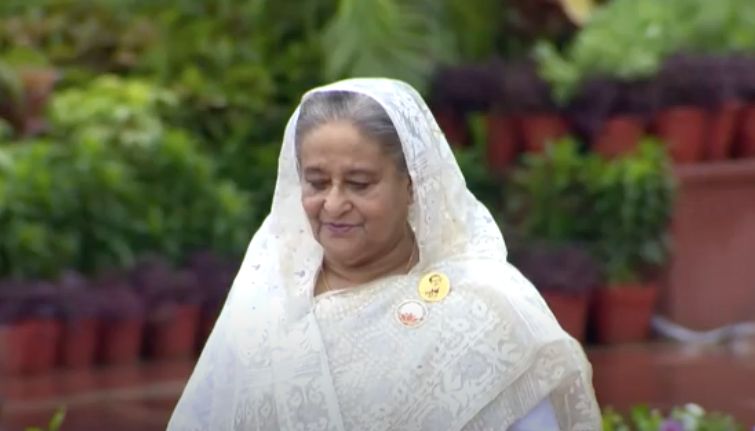
Following the dramatic overthrow of Bangladesh’s government by student protesters in August, a group of boys broke into the home of Tureen Afroz, the former chief prosecutor of a tribunal for war crimes committed during the nation’s independence movement in the early 1970s. They forcibly entered her bedroom, questioned her about not wearing a hijab, and proceeded to shave her head. For days, the youths held her hostage, stabbing her with pencils and lecturing her about Islam. Afroz feared for her young daughter’s safety and her own life, reports Bloomberg.
Bangladesh, home to the world’s fourth-largest Muslim population, now faces a critical turning point. Western and Indian officials are concerned that Islamist extremists may gain a foothold in this volatile region, where terrorist networks like the Islamic State have made advances in recent years.
The ousting of former prime minister Sheikh Hasina after 15 years of increasingly authoritarian rule initially sparked hopes for a new era of democracy and clean government.
Yunus: Accused by Hasina, adored by students
The army reinforced this optimism by appointing Nobel laureate Muhammad Yunus, a friend of Hillary Clinton known for pioneering microcredit to the poor, to lead an interim government.
He was a popular choice. The students whose agitation led to Hasina’s ouster wanted Yunus to lead the interim government.
It’s a remarkable turnaround for Yunus, who faced prosecution under Hasina. She criticized him, accusing him of exploiting the poor through his microcredit programmes and pressing charges of money laundering and graft against him. These charges were dropped after the change in leadership.
Unfortunately, the new government has not been able to restore order. Yunus has condemned the wave of violence, but he lacks political experience and his advisory team consists mainly of academics, activists, and students.
Sajeeb Wazed, Hasina’s son, suggests that Yunus lacks real power. The new leader has spent much of his time in a fortified guest house, constantly accompanied by military personnel.
Despite her flaws, Hasina was praised by Indian Prime Minister Narendra Modi in particular for keeping Islamists at bay.
Militants are back
Now, the Islamic militants are back. The ban Hasina imposed on the fundamentalist Jamaat-e-Islami party has been lifted.
The threat of sectarian violence is growing.
Since Hasina fled to India on August 5, masked men have set Hindu temples ablaze and decapitated statues of secular icons like the poet Rabindranath Tagore. A letter circulated at the University of Dhaka instructing female professors to wear “traditional clothing”.
Independence struggle
Bangladesh has a violent history.
The 1971 struggle for independence from Pakistan resulted in the deaths of up to three million Bengalis, while another 10 million people – mostly from the Hindu minority – fled to neighbouring India.
Hasina’s father, who served as Bangladesh’s first president, was assassinated with most of his family in a military coup in August 1975. Hasina and her sister, Rehana, who were visiting Europe at the time, were granted asylum by the then Indian prime minister Indira Gandhi.
Hasina sought to prosecute those responsible for acts of genocide after she took power in 2009.
Uncertain future
Now, with Hasina out of power, revenge-style attacks against Hasina’s supporters and religious minorities have proliferated. Lawlessness rules in Dhaka, the capital. Thousands of Hindus have already attempted to flee into a sensitive area of India bordering Tibet and Myanmar – a region long associated with armed rebel groups.
The future remains uncertain. The army, which forced Hasina out, has stated its intention to hold democratic elections within a year and a half, though this timeline is not definite.
Bangladesh’s once-promising economy, built on the world’s second-largest garment industry, requires at least $3 billion in emergency aid from the International Monetary Fund.
Hasina’s supporters argue that recent vigilantism justifies her tough governance approach. Their views are coloured by personal suffering. Many leaders and supporters of Hasina’s Awami League party have been charged with crimes or attacked by mobs.
Members of the Bangladesh Nationalist Party (BNP) led by HasIna’s fiercest rival, former prime minister Begum Khaleda Zia, however, deny causing trouble. Instead, the supporters of the BNP — formerly allied with the fundamentalist Jamaat-e-Islami — recall their persecution under Hasina.
Their denials notwithstanding, these self-professed former victims are now accused of persecution by their former alleged tormentors. The tit-for-tat apparently continues in Bangladesh.






